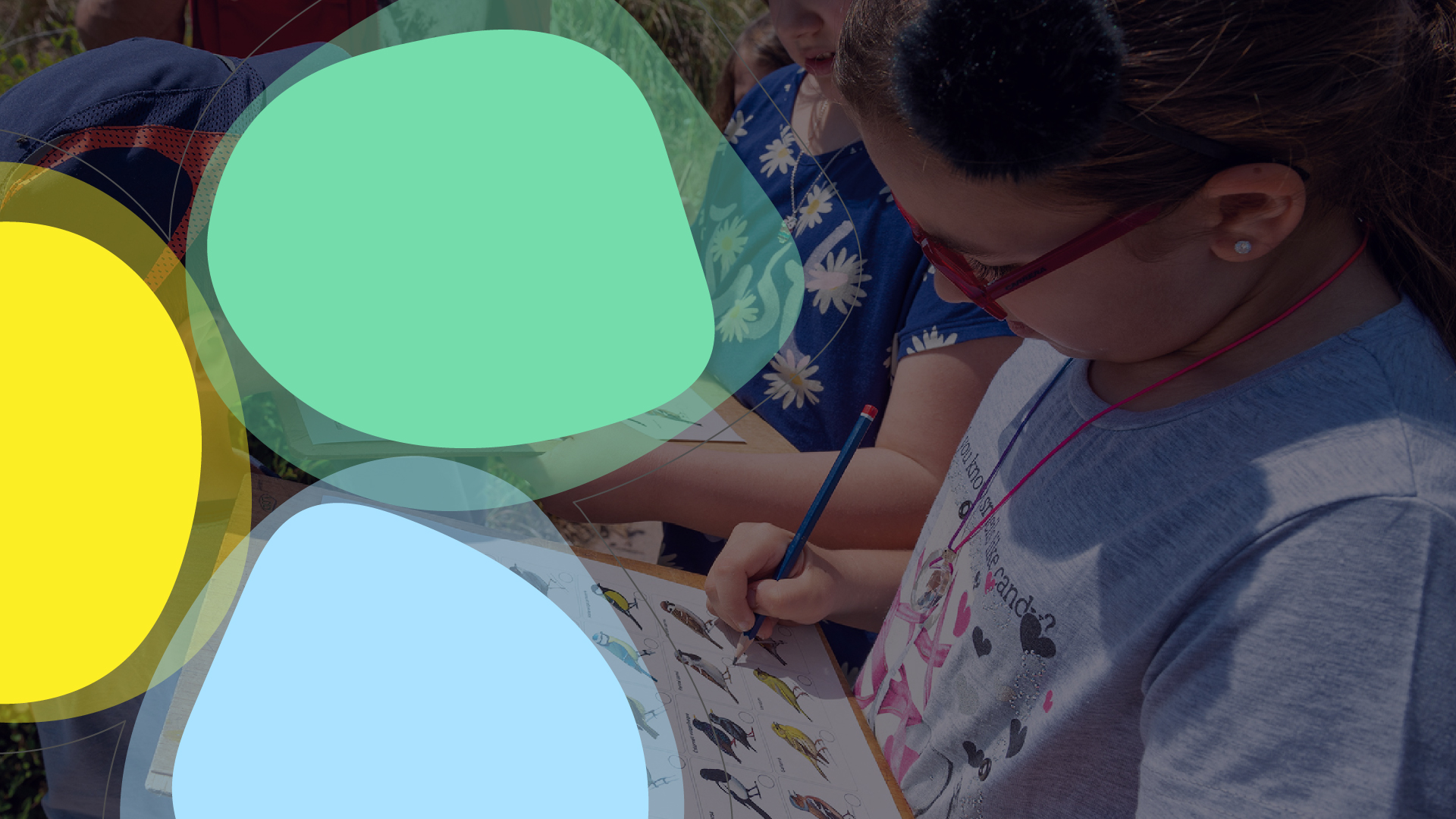
Call for input - ERRIN NEB input paper
As part of its activities, the NEB Task Force has organised a meeting in October to discuss the local approaches to the NEB Initiative. During the event, a discussion took place on the objectives, implementation, financing and R&I aspect of the initiative in its future format.
As the NEB public consultations are open, the New European Bauhaus Task Force has been developing an input paper based on the members' input collected through a survey and during the last meeting. The document will feed into the open consultation on the future of NEB and will present ERRIN members' views on the needs, challenges and opportunities in this context.
We know now that the proposed NEB Mission wasn't approved. Nevertheless, ERRIN will reply to the open consultations to flag the interest and shape the future NEB initiative.
Please find the first draft attached. If you would like to contribute to this draft, please get in touch with gaia.marotta@errin.eu and agnieszka.wieczorek@errin.eu to get access. We will be collecting contributions until 8 December.
- Agnieszka Wieczorek Jetha
- 28 November 2023
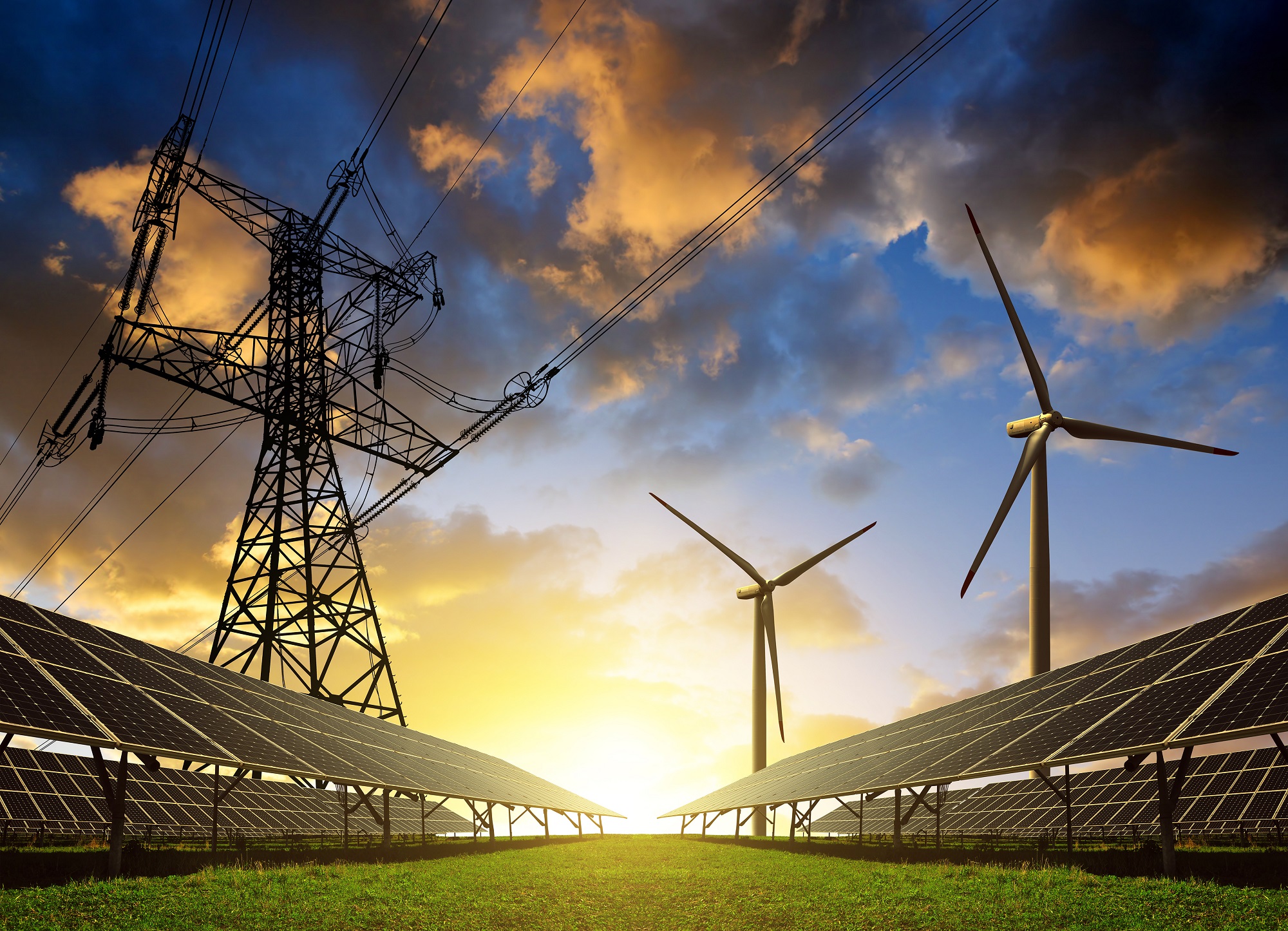
Regulatory sandboxes in the energy sector
The Energy and Climate Change Working Group is organising its upcoming meeting on regulatory sandboxes in the energy sector on Tuesday 12 December from 14:00 to 15:30 CET.
The meeting will take place at ERRIN's office (Rue Luxembourg 3, 1000 Brussels) and will be accessible online for non-Brussels participants.
Regulatory sandboxes, designed to facilitate the testing of innovations in a controlled real-world environment, will be the focal point of discussion. The objective of this meeting is to understand the potential significance of this tool for the implementation of energy-related policies at the regional and local levels.
Representatives from the European Commission, who contributed to a dedicated staff working document, will present the Commission's views on regulatory sandboxes in the energy sector. To set the stage for discussions, a keynote speech will address major concerns and provide context from a regional perspective. Moreover, ERRIN members representative will share practical experiences with regulatory sandboxes from their region.
During the meeting, a moderated discussion will provide ERRIN members with an opportunity to actively engage, gather insights, and dialogue with the European Commission. This will be an opportunity to share your needs concerning regulatory sandboxes at the regional level.
The agenda is available on the right-hand side.
To register in person, please fill in the standard webform on your right-hand side. To participate online, please fill in the webform here.
For more information, please contact silvia.ghiretti@errin.eu and rodolphe.doite@errin.eu
- 12/12/2023 - 14:00 - 12/12/2023 - 15:30
- This meeting will take place online
-
ERRIN
Rue du Luxembourg 3
1000 Brussels, Belgium
Belgium - Silvia Ghiretti
-
Member
-
Working Group
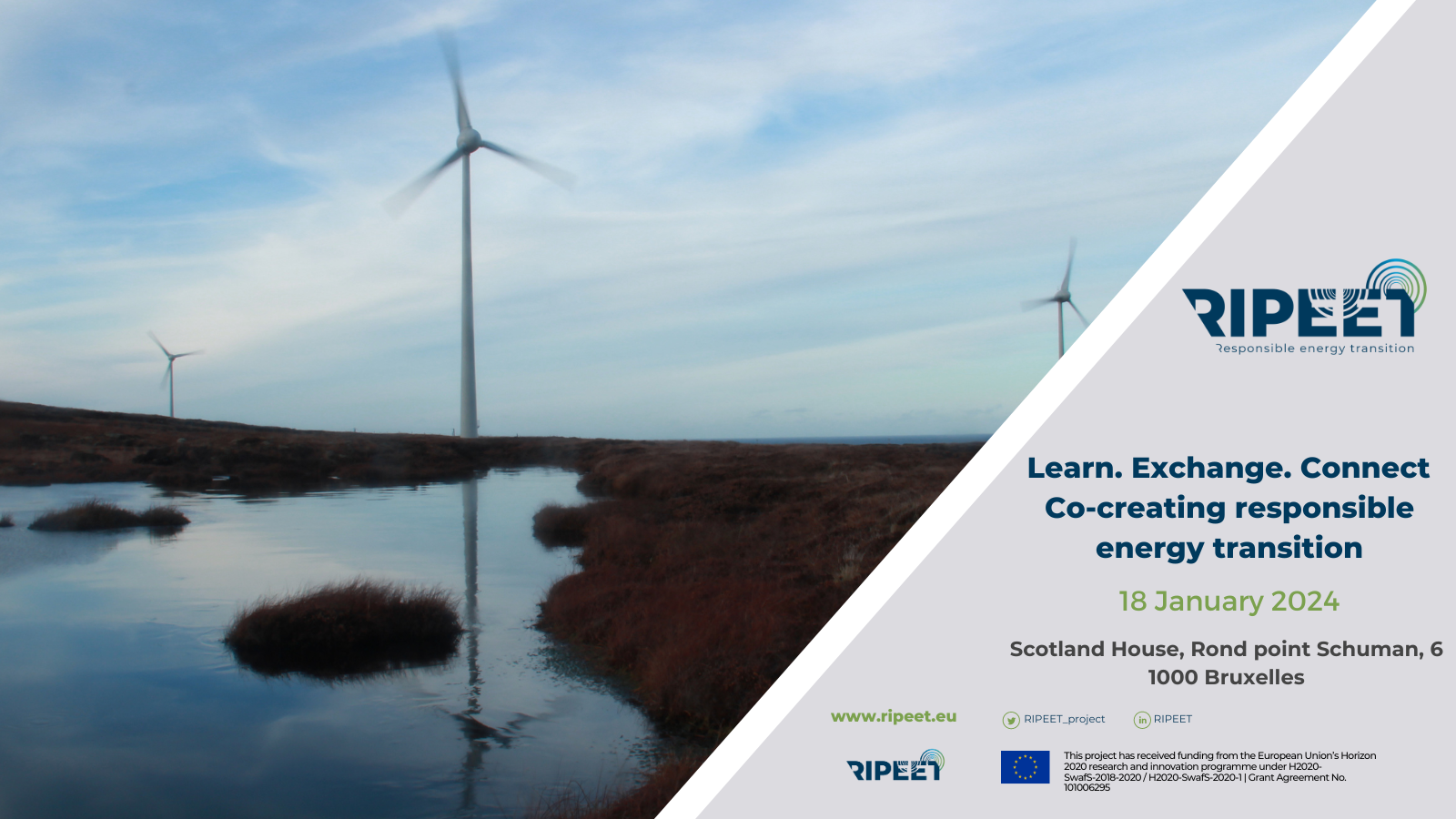
Learn. Exchange. Connect - Co-creating responsible energy transitions - RIPEET Final conference
As the RIPEET project is coming to an end, ERRIN and the consortium is happy to invite invite local and regional authorities’ representatives, co-creation experts and researchers to join our conference on 18 January 2024.
The event will bring together European Commission representatives, policy-makers, co-creation experts, as well as regional representatives from our pilot territories and mirror ecosystems, to discuss the critical role of stakeholders engagement in energy transition, but also in a wider context of green transition.
The event will be also an opportunity to present the resources that RIPEET is developing to support local and regional authorities in starting their own Transition Lab processes and celebrate together the achievement and the work done in RIPEET so far.
You can find the agenda of the Final conference on this page.
The event will take place in person at Scotland House (Rond-point Schuman, 6, 1000 Brussels) on 18 January 2024 from 09:30-12:30. The meeting will be followed by a networking lunch. You will also have the possibility to attend the meeting online.
In order to attend the event, onsite or online, please register by 11 January on this page.
For more information, please contact francesca.pozzebon@errin.eu and rodolphe.doite@errin.eu
- 18/01/2024 - 09:00 - 18/01/2024 - 13:00
-
Scotland Europa
Rond-point Schuman, 6
1000 Brussels
Belgium - Rodolphe Doité
-
Working Group
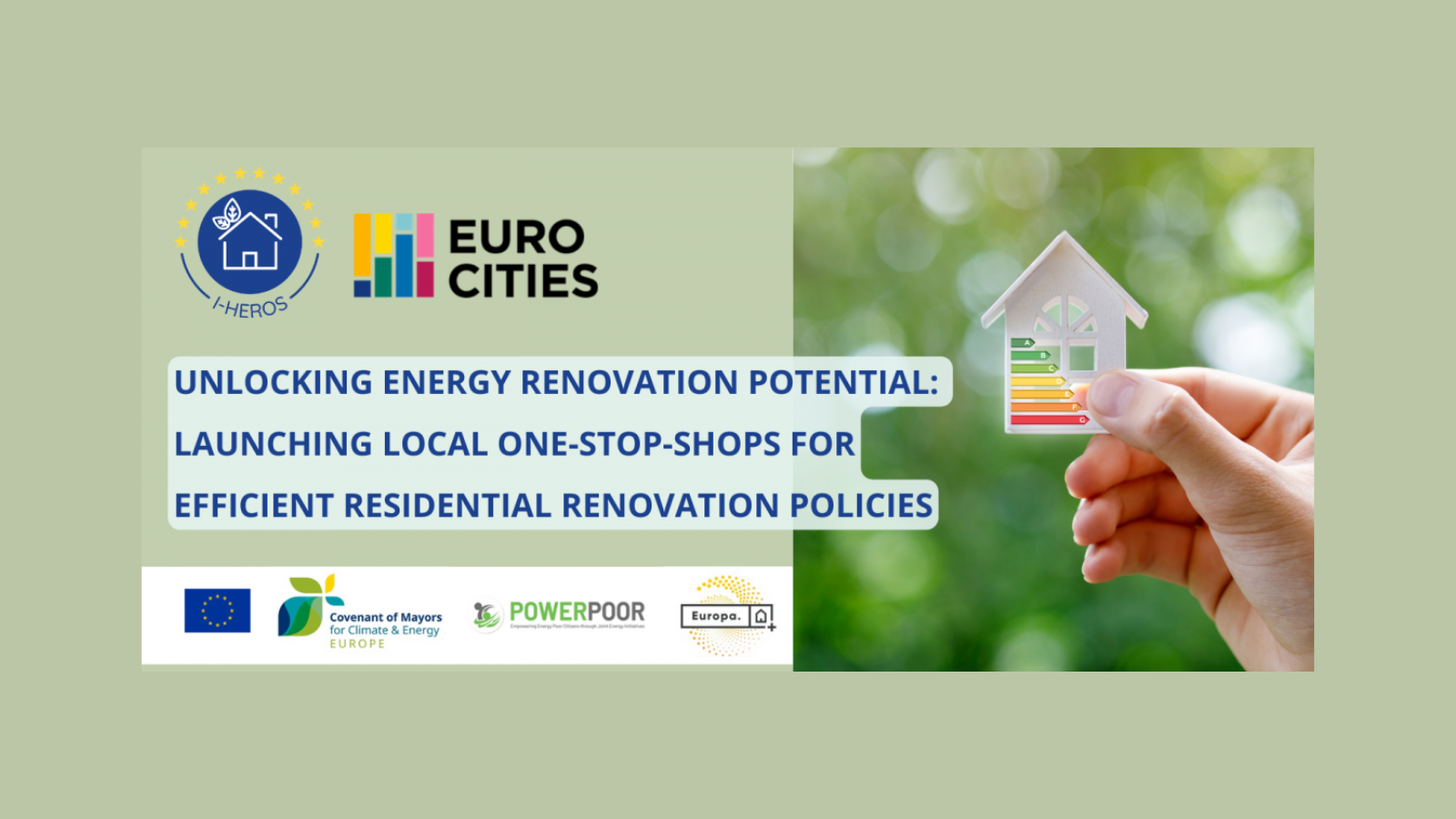
I-HEROS Webinar : Unlocking energy renovation potential: Launching local One-Stop-Shops for efficient residential renovation policies
The revised Energy Performance of Buildings Directive, currently under negotiation, highlights the key role of local governments in the set-up and operation of home renovation services. The European Parliament has proposed to establish at least one one-stop-shop per region and per 45,000 inhabitants, with a harmonised approach to be implemented in member states. This means that our OSS and IHRS systems will have to be stepped up. The aim of this webinar, based on feedback from several OSS, is to present the future challenges for urban renovation policies. More specifically, and thanks to some concrete examples of OSS implementation, we will reflect on how these services can be expanded and replicated and what key conditions are needed to make them sustainable in the long term.
Expected Outcomes
- What are cities’ most pressing current and future challenges for the creation of Integrated Home Renovation Services (IHRS)?
- How can we replicate our local practices to boost building renovations?
- What financing systems are needed to set up a sustainable system in terms of One-Stop-Shops (OSS)?
Please register here.
About I-HEROS
The I-HEROS project aims at developing an entirely integrated home renovation service for homeowners in Toulouse Metropole. By increasing the coordination between existing programs and targeting specific households, this one stop shop aims at renovating an additional 2000 housings per year by the end of the project. It also aims to share the technical aspects of the successful implementation with international stakeholders or policy makers. This project has received funding from the European Union's Horizon 2020 research and innovation program under grant agreement No 890598.
- 14/12/2023 - 14:00 - 14/12/2023 - 16:00
- This meeting will take place online
- Romane Faure
-
Member
-
Working Group
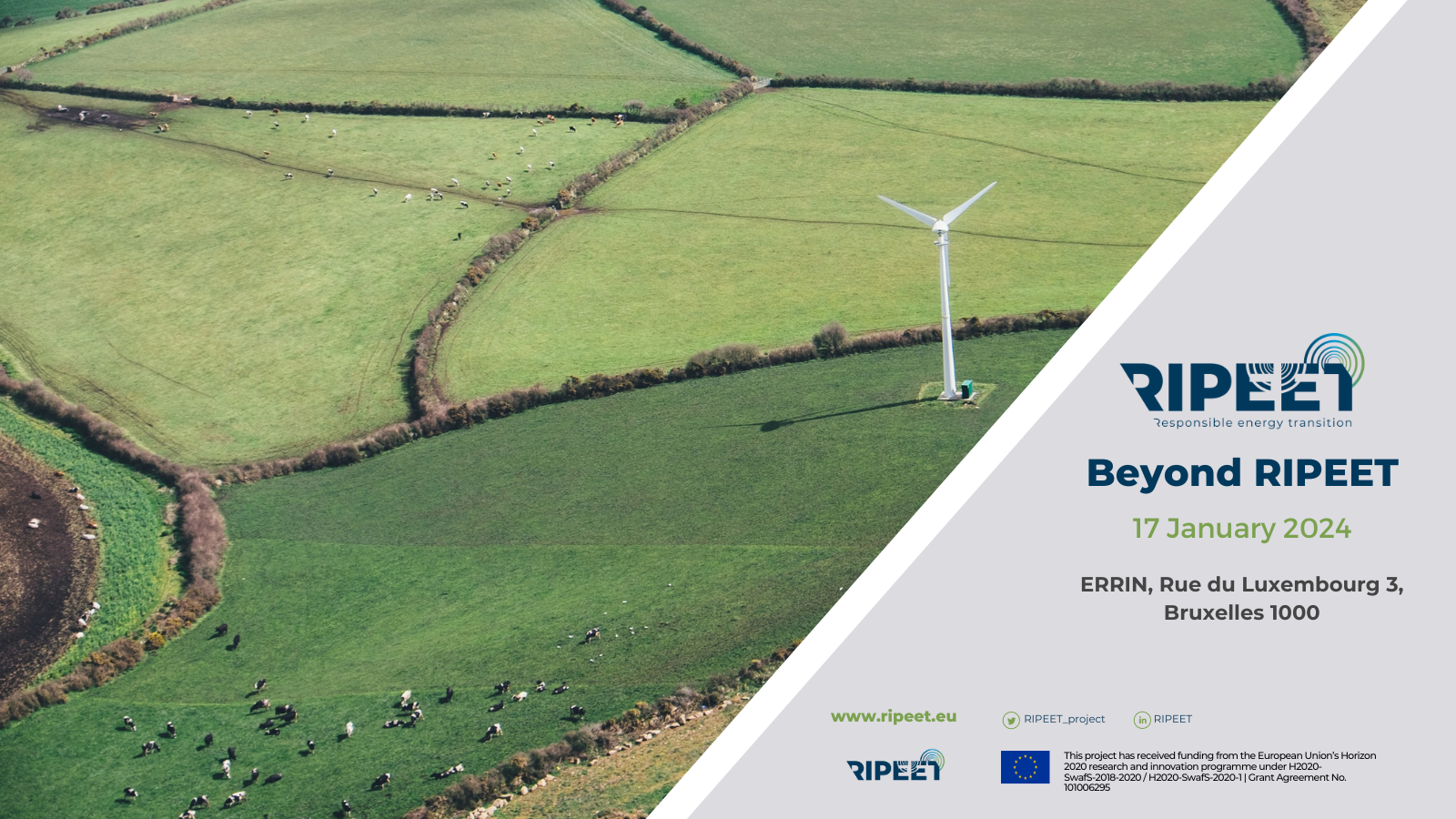
Express your interest in future collaboration opportunities on stakeholders' engagement
On 17 January 2024, ERRIN will host a future collaboration opportunities session focusing on stakeholders engagement across different sectors and looking into project opportunities on specific HORIZON Europe calls, with deadlines in mid-2024 and early 2025.
In this occasion, ERRIN members will have the chance discuss and develop future project opportunities on specific HORIZON Europe calls. The session will focus on calls related to stakeholders engagement in the field of energy, climate resilience and adaptation and built environment, with deadlines in mid 2024 and early 2025.
With the aim of creating an excellent opportunity for our members to connect and strengthen potential consortia, we invite all ERRIN members and their regional ecosystems to express their interest through the survey below by 6 January 2024. The survey is intended to identify the interest and type of role that members expect to undertake in a consortium.
ERRIN members are also encouraged to share this call with their local ecosystem (e.g. universities, research centres, private companies) and express interest on behalf of their stakeholders.
You can find more information on the calls included in the survey:
- HORIZON-CL5-2024-D2-01-04: Emerging energy technologies for a climate neutral Europe
- HORIZON-CL5-2024-D3-02-08: Minimisation of environmental, and optimisation of socio-economic impacts in the deployment, operation and decommissioning of offshore wind farms
- HORIZON-CL5-2024-D4-02-05 Digital solutions to foster participative design, planning and management of buildings, neighbourhoods and urban districts (Built4People Partnership)
- HORIZON-MISS-2024-CLIMA-01-08: Demonstration of solutions specifically suited to rural areas and small/ medium size population entities (Please note that additional information on the EU Mission calls will be provided as soon as officially released by the European Commission)
- HORIZON-JTI-CLEANH2-2024-07-01: Large-scale Hydrogen Valley (Please note that additional information on the Hydrogen Valleys calls will be officially released by the Clean Hydrogen partnership in January 2024)
- HORIZON-JTI-CLEANH2-2024-07-02: Small-scale Hydrogen Valley (Please note that additional information on the Hydrogen Valleys calls will be officially released by the Clean Hydrogen partnership in January 2024)
The match-making session will be organised as part of the RIPEET project final event, which will see the active participation of RIPEET pilot ecosystems, Extremadura, the Outer Hebrides and Ostrobothnia and partners, building on the good practices and lessons learnt from the RIPEET project.
- Francesca Pozzebon
- 27 November 2023
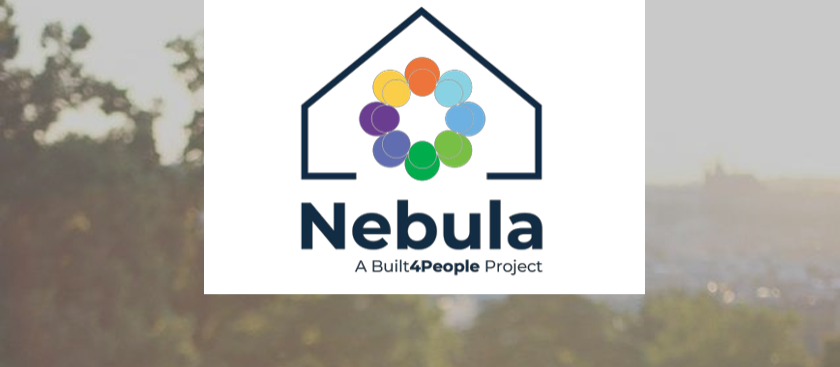
New European Bauhaus handbook
A handbook on the New European Bauhaus (NEB) was recently developed as part of the NEBULA project, a Coordination and Support Action funded by the Horizon Europe program.
The handbook is addressed to any person or entity willing to understand the concepts underlying the New European Bauhaus initiative launched by the European Commission and get familiar with the associated resources and opportunities. It gives you insights on its origin and what the initiative is about, how to access the community and resources and, most importantly, how you can make your project “NEB by design” and where to get funding to support your NEB project.
All of that in an easily digestible format. Download your digital copy here.
- Francesca Pozzebon
- 27/11/2023
-
Working Group
University of Udine is searching for partners for Horizon FARM2FORK call
- 24/11/2023
-
Funding Programme
-
Deadline for Expression of Interest01 February 2023
-
Nameprof. Mauro SpangheroOrganisation NameUniversity of Udine
- Get in Touch
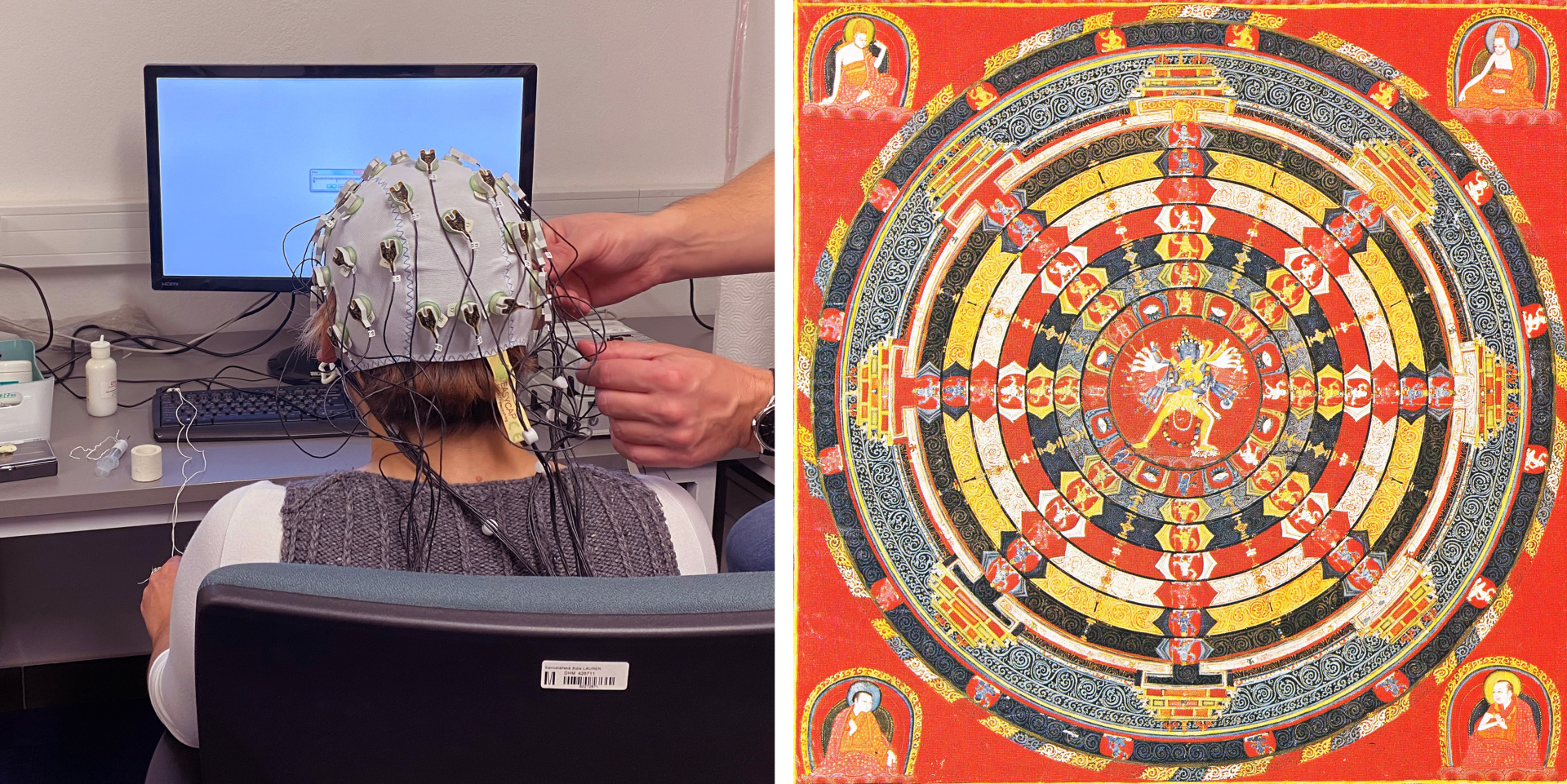
Projects from EDUC-SHARE in South Moravia
The eight EDUC European University Alliance partners establish an integrated European University, fostering collaboration among students, researchers, and staff across diverse institutions in terms of size, age, languages, and focus. Through digital tools and face-to-face interactions, the Alliance creates a robust network for sharing knowledge and academic values. There are two new projects that were created in South Moravia, a member of ERRIN.
Veronika Szendro, a PhD student from the University of Pécs, embarked on a research project during her stay in Brno, South Moravia region, supported by the EDUC-SHARE project. Her research delves into the "Effect of the perception of specific visual patterns of Buddhist mandalas on brain activity." Rooted in art, psychology, and neuroscience, Szendro aims to unravel the impact of visual elements within Buddhist mandalas on inducing a meditative brain state and increasing alpha waves. Collaborating with HUME Lab and MAFIL Core Facility at CEITEC in Brno, she utilises EEG measurements to correlate brainwave data with subjects' experiences, bridging the gap between humanities and natural sciences.
Eliška Pivrncová, a PhD student at Masaryk University in Brno, South Moravia explores the "Exploring Infant Microbiome Development" as part of the EDUC-SHARE project. Her research, focused on the first year of a child's life, investigates the influence of breast milk, diet, and weaning on the microbiome. Pivrncová employs metabolomic analyses at the Microbiome Analysis Laboratories. With the aim to understand how breast milk composition affects the child's gut microbiome, she bridges nutrition, metabolomics, and microbiome research, emphasising the importance of breastfeeding in the early stages of life.
- Intern SMR
- 22 November 2023
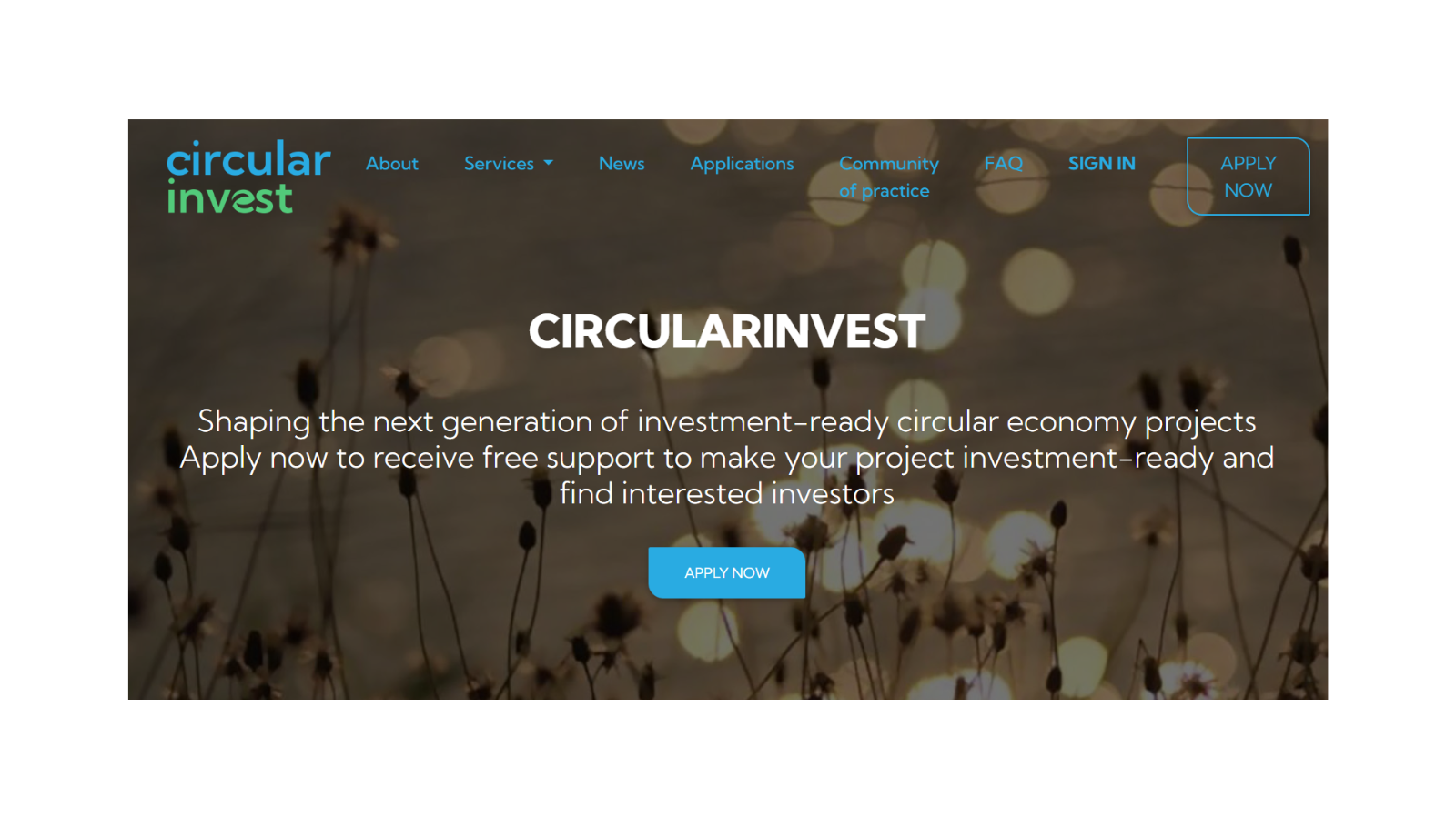
CircularInvest Open Call: project development assistance for local and regional circular economy projects
Unlocking Investment Opportunities for Circular Economy Projects: Launch of CircularInvest's Second Call
The second call of CircularInvest is now open. Project developers looking to benefit from these unique services can apply by 15 December 2023. To find more details and access the application portal, visit here.
CircularInvest offers a comprehensive suite of services to empower circular economy project promoters:
- Tailored Mentoring Sessions: Experienced experts provide personalised mentoring sessions to enhance the circularity of supported projects. These sessions also help in developing robust business plans and securing funding.
- Peer-to-Peer Workshops: Project promoters can participate in peer-to-peer online workshops, enabling them to learn from and collaborate with other circular economy developers.
- Pitch Sessions: CircularInvest provides opportunities to pitch projects to potential investors, both online and in live settings.
- Knowledge Transfer and Networking: Participants can engage in knowledge transfer events and expand their networks through a Community of Practice.
- Promotion: CircularInvest offers a platform for project promoters to showcase their projects through various channels.
It is important to note that while CircularInvest does not provide direct financial resources to selected projects, it does offer invaluable support and networking opportunities. CircularInvest is one of the first Project Development Assistance (PDA) projects operating under the Circular Cities and Regions Initiative (CCRI) of the European Union.
- Astrid Hannes
- 22 November 2023
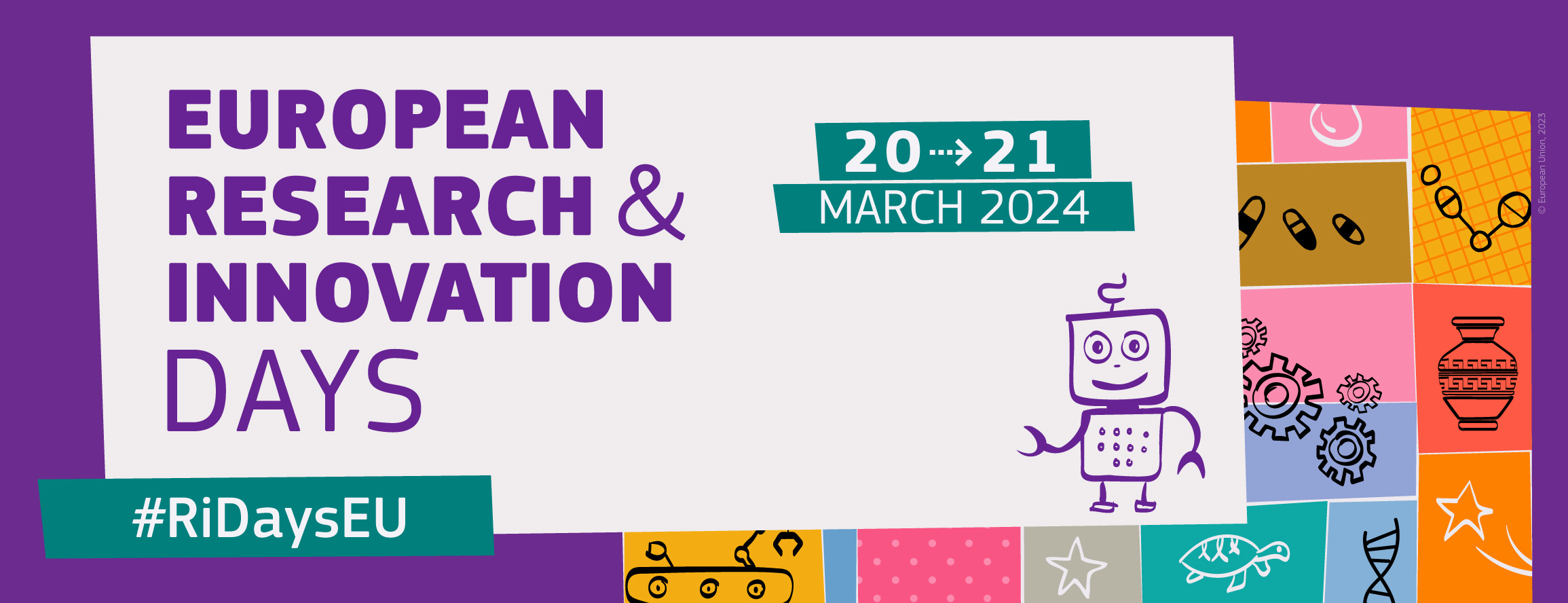
European Research and Innovation Days 2024
The European Commission’s annual flagship Research and Innovation event brings together policymakers, researchers, entrepreneurs, and the public to debate and shape the future of research and innovation in Europe and beyond.
This fifth edition of the event will take place on 20 and 21 March 2024 both physically in Brussels and online, allowing everyone to get involved from anywhere.
The R&I Days 2024 will give you the opportunity to debate how we can make Europe more sustainable and competitive and will celebrate the outcomes and achievements in research and innovation over the last 40 years, since the launch of the first R&I Framework Programme.
It’s your chance to discover successful EU-funded R&I projects, experience their impact on our society and debate about the importance of investing in R&I.
More information available here.
- 20/03/2023 - 09:00 - 21/03/2023 - 18:00
- This meeting will take place online
- Agnieszka Wieczorek Jetha
-
Working Group